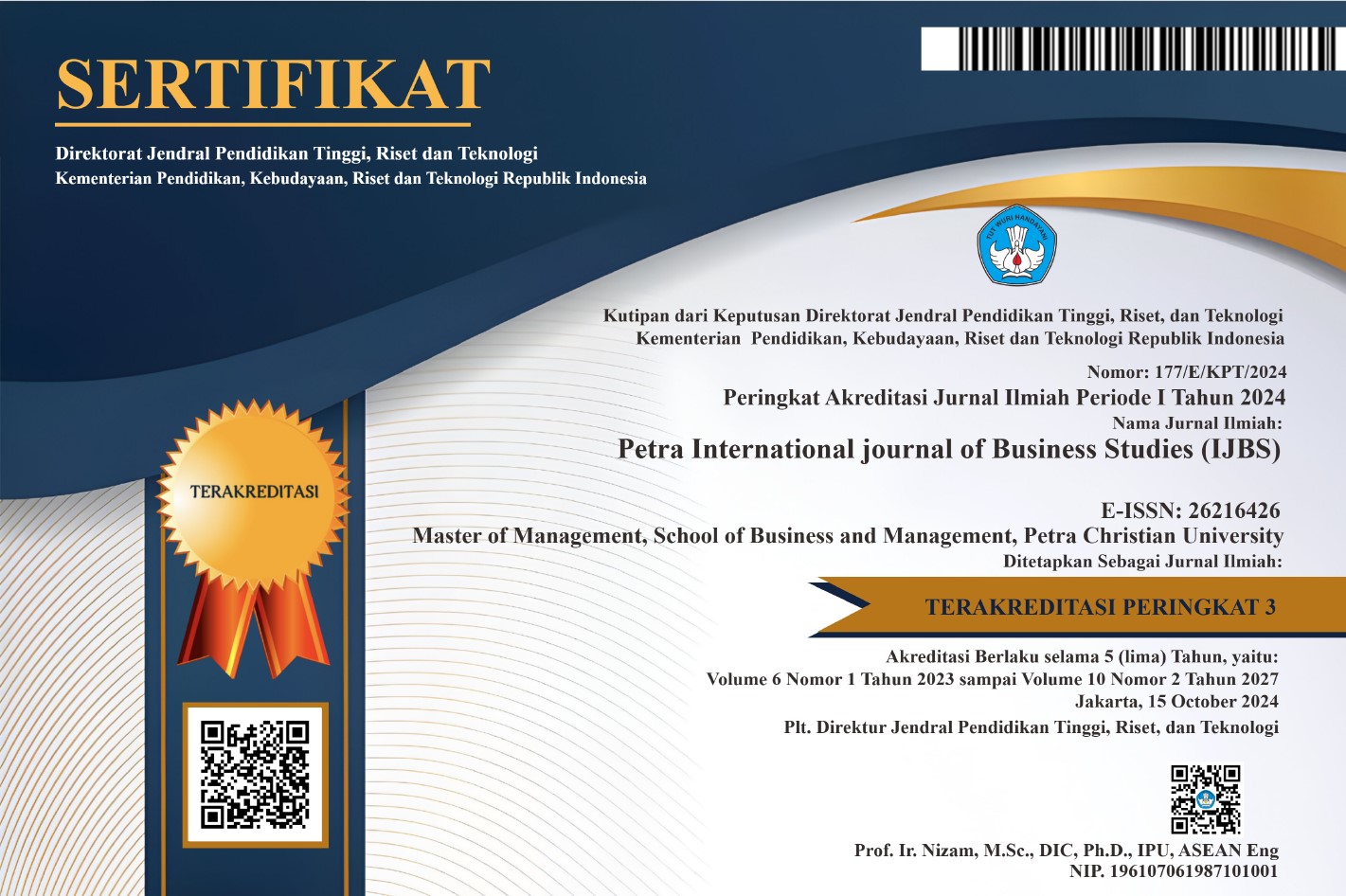The Influence of Inflation Rate, Exchange Rate, Corruption Control, and Political Stability to Indonesian Goverment Bond Yield
DOI:
https://doi.org/10.9744/ijbs.3.1.18-22Keywords:
Indonesian Government Bond Yield, Inflation Rate, Exchange Rate, Corruption Control, Political StabilityAbstract
As a developing country that still has to develop in all fields and to maintain its economic development, the Indonesian government requires significant funds for development. To fulfill the lack of funds obtained from the tax, the Indonesian government sells bonds. Indonesia's 10-year government bonds are known as Surat Utang Negara (or abbreviated as SUN). This study aims to confirm whether the inflation rate, exchange rate, political stability, and corruption control affect the yield of SUN. The research uses descriptive methods and explanatory studies with secondary data based on systematic sampling of periods chosen from January 2013 to December 2019. Multivariate regression equation models were used with a significance level of 5% for the t-test. The conclusions are: partially and simultaneously inflation rate, exchange rate, control corruption, and political stability have a significant effect on the Indonesian Government Bond. This research found that deteriorating political stability and control corruption would cause government bond yields to increase
Downloads
Additional Files
Published
Issue
Section
License
Petra IJBS (e-ISSN: 2621-6426) is published by Master of Management program, School of Business and Management, Petra Christian University, Indonesia (MM SBM PCU).












